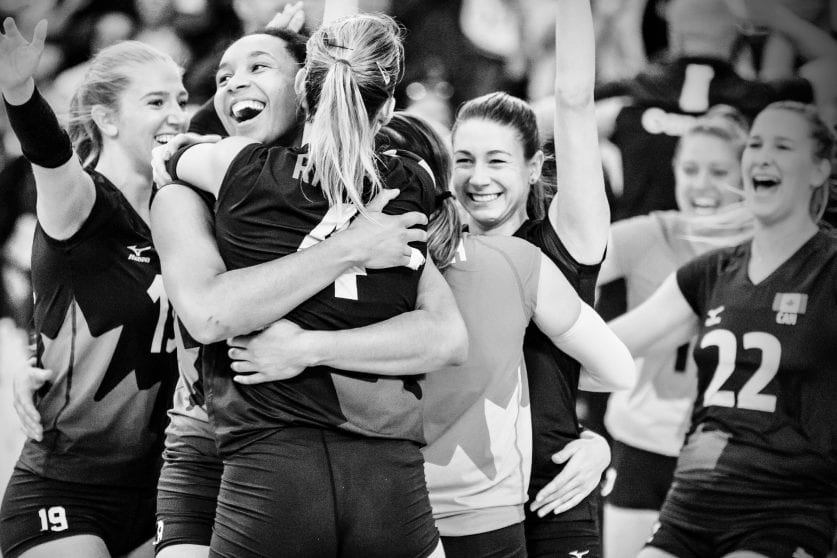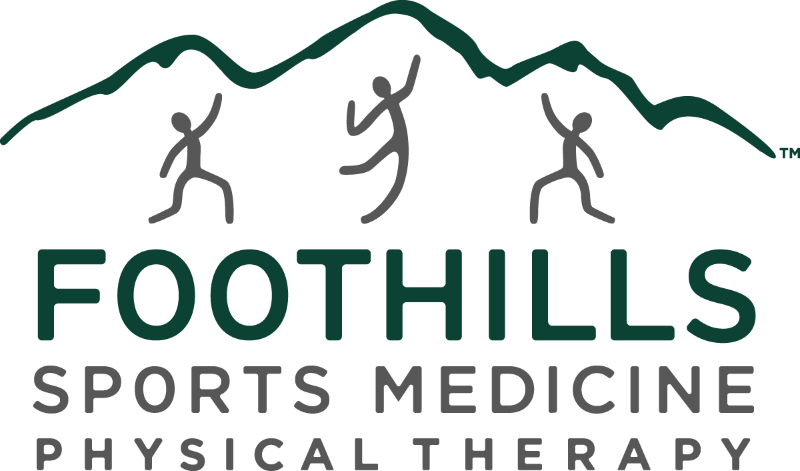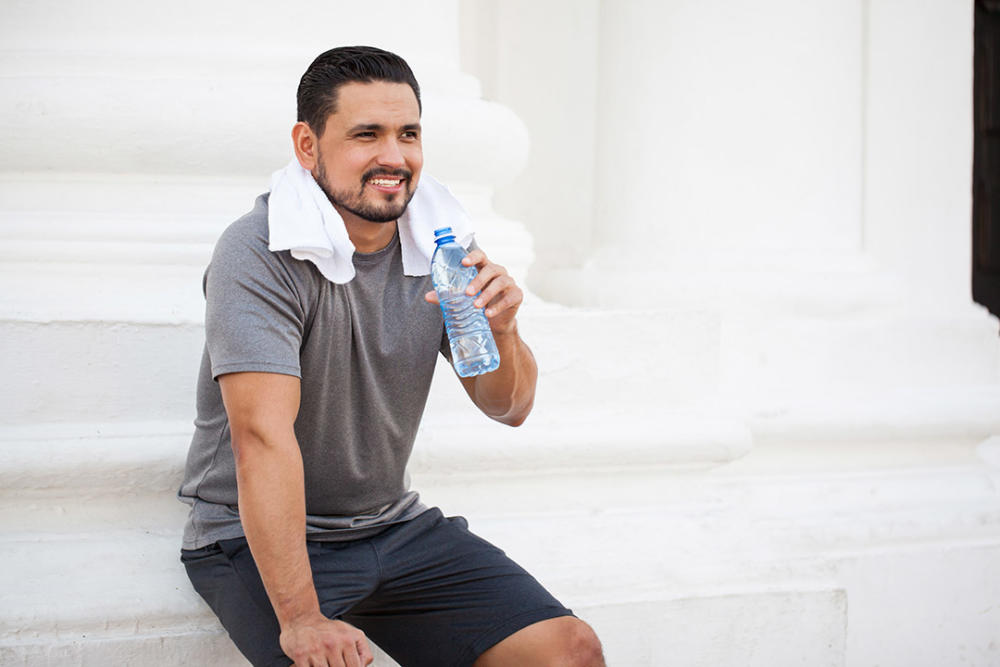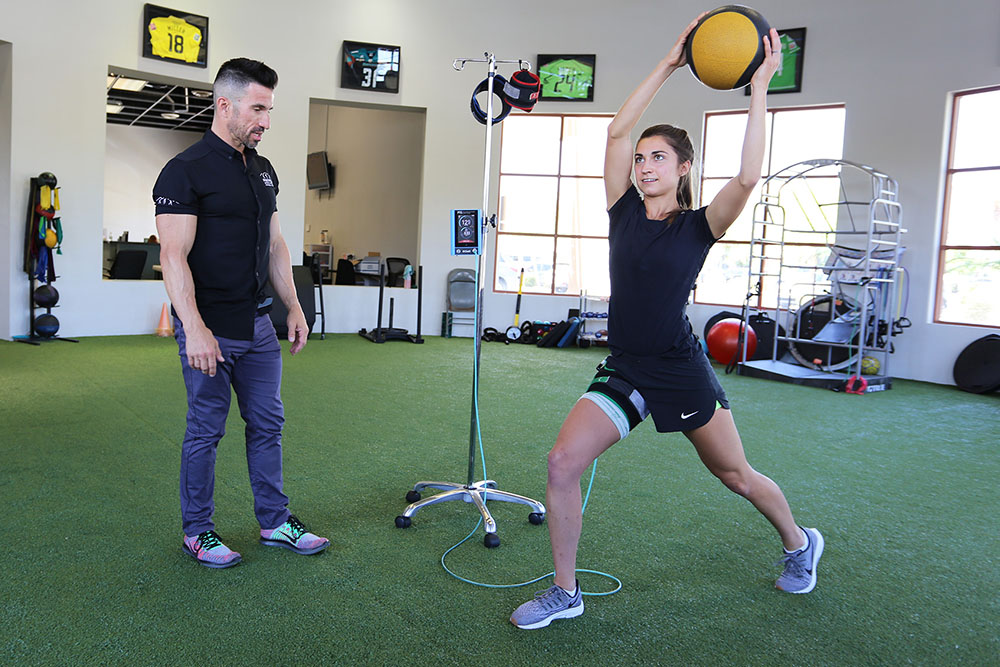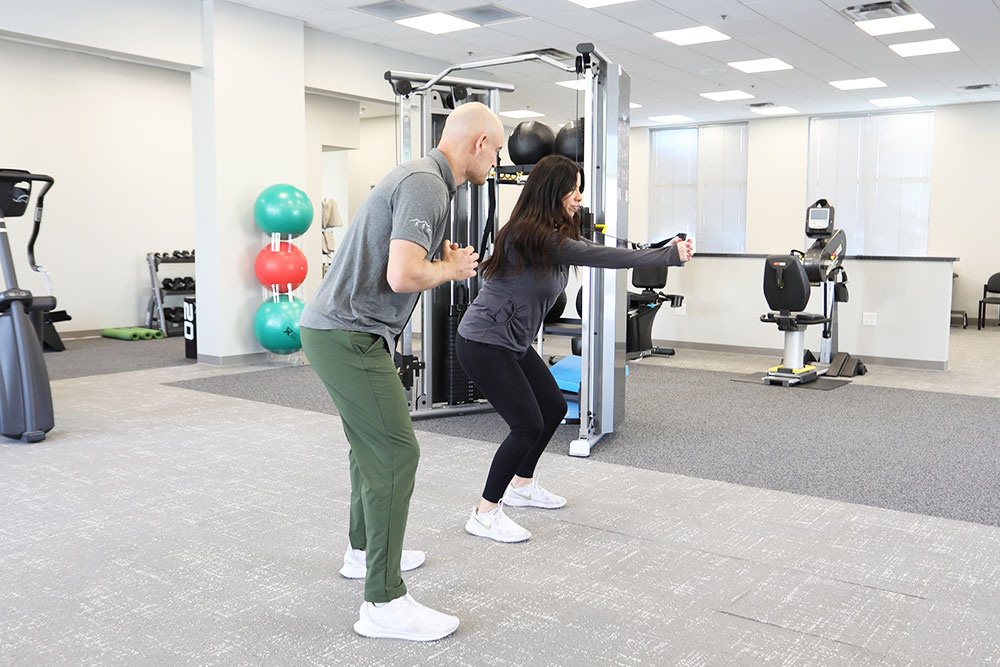We’re continuing to showcase the athletic training industry through a series of athletic training Q&A features on our blog. From seasoned AT’s to those that are just starting out—there’s advice and insight you can learn from each featured athletic trainer. Read on to learn about Aubrie Carter and what advice she has for those wanting to pursue a career.
How long have you been an athletic trainer and what’s your background in athletic training?
Aubrie Carter: I have been a certified athletic trainer for 8 years working a majority of that time in the collegiate setting at Grand Canyon University with primarily Women’s Indoor Volleyball and Beach Volleyball, secondarily Women’s Basketball and Track & Field. During that time, and currently, I have acted as a preceptor for the ATEP program at GCU and instructed many athletic training and exercise science courses. I made the transition to Foothills Sports Medicine Physical Therapy in the fall of 2017.
Why did you become an athletic trainer?
Aubrie Carter: Sports have always played a large role in my life from the time I was little through college, however I knew that being a professional athlete was not in my career path. In high school I became interested in strength training and overall health and wellness, but learned how important prevention and precise treatment of injuries was which led me to pursue what a degree in athletic training entailed. I also am not the best mathematician and athletic training still allowed me to get a degree without any math skills.
What role does an athletic trainer play for sports teams?
Aubrie Carter: I believe that the role can vary based on the level and environment. The athletic trainer should be a great educator in prevention, knowledgeable in mechanism of injury, and most importantly a great listener. You are an advocate for the athlete! In my experience, being available to listen to needs is where I have found success and been able to lead athletes to success, whether that is keeping them injury free, returning them to play ASAP, or getting them through their next exam or breakup.
Where do you see the profession of athletic training going in the next 5 years?
Aubrie Carter: I hope to see recognition in the medical profession grow. Athletic trainers have a lot to offer if given the right opportunity.
What advice would you give to someone who wants to pursue athletic training as a career?
Aubrie Carter: As a preceptor for Grand Canyon University, I always tell all my students that being an athletic trainer is not easy. Like many other jobs in the medical profession, being an athletic trainer can mean working lots of hours with minimum pay and minimum recognition. However, when they experience returning their first injured athlete back to the competition it is all worth every hour of time. Some other practical advice I would give: make sure you really understand the role and job description of an Athletic Trainer. No, it is not personal training, strength training, or a life coach; but it will involve aspects of all three. The best way to understand this is to start networking and volunteering your time in observation of the profession.
Does athletic training sound like a profession you’d like to pursue? Contact us today, as we’d love to connect with you and further help you achieve your goal of being part of the athletic training industry.
National Athletic Training Month Q&A
